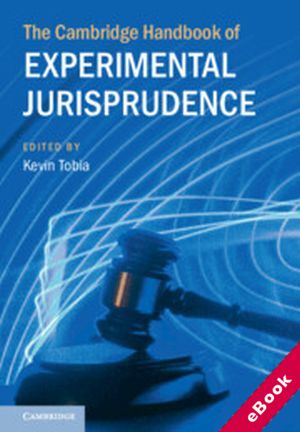
The device(s) you use to access the eBook content must be authorized with an Adobe ID before you download the product otherwise it will fail to register correctly.
For further information see https://www.wildy.com/ebook-formats
Once the order is confirmed an automated e-mail will be sent to you to allow you to download the eBook.
All eBooks are supplied firm sale and cannot be returned. If you believe there is a fault with your eBook then contact us on ebooks@wildy.com and we will help in resolving the issue. This does not affect your statutory rights.
This handbook introduces readers to the emerging field of experimental jurisprudence, which applies new empirical methods to address fundamental philosophical questions in legal theory. The book features contributions from a global group of leading professors of law, philosophy, and psychology, covering a diverse range of topics such as criminal law, legal interpretation, torts, property, procedure, evidence, health, disability, and international law.
Across thirty-eight chapters, the handbook utilizes a variety of methods, including traditional philosophical analysis, psychology survey studies and experiments, eye-tracking methods, neuroscience, behavioural methods, linguistic analysis, and natural language processing. The book also addresses cutting-edge issues such as legal expertise, gender and race in the law, and the impact of AI on legal practice. In addition to examining United States law, the work also takes a comparative approach that spans multiple legal systems, discussing the implications of experimental jurisprudence in Australia, Germany, Mexico, and the United Kingdom.